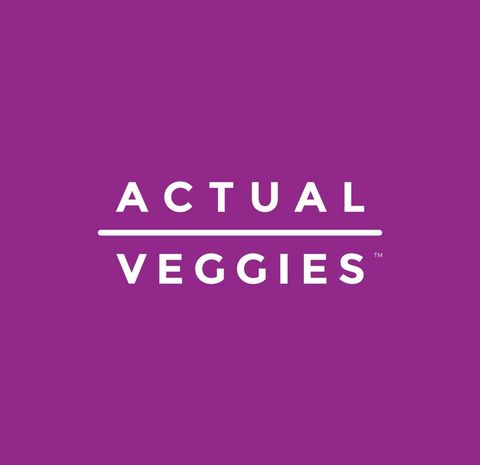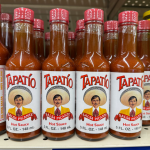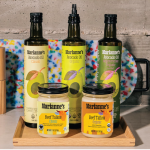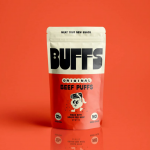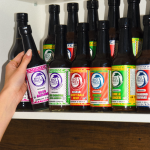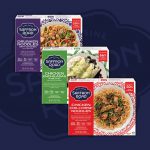Actual Veggies Adds New Cash, Doubles Door Count
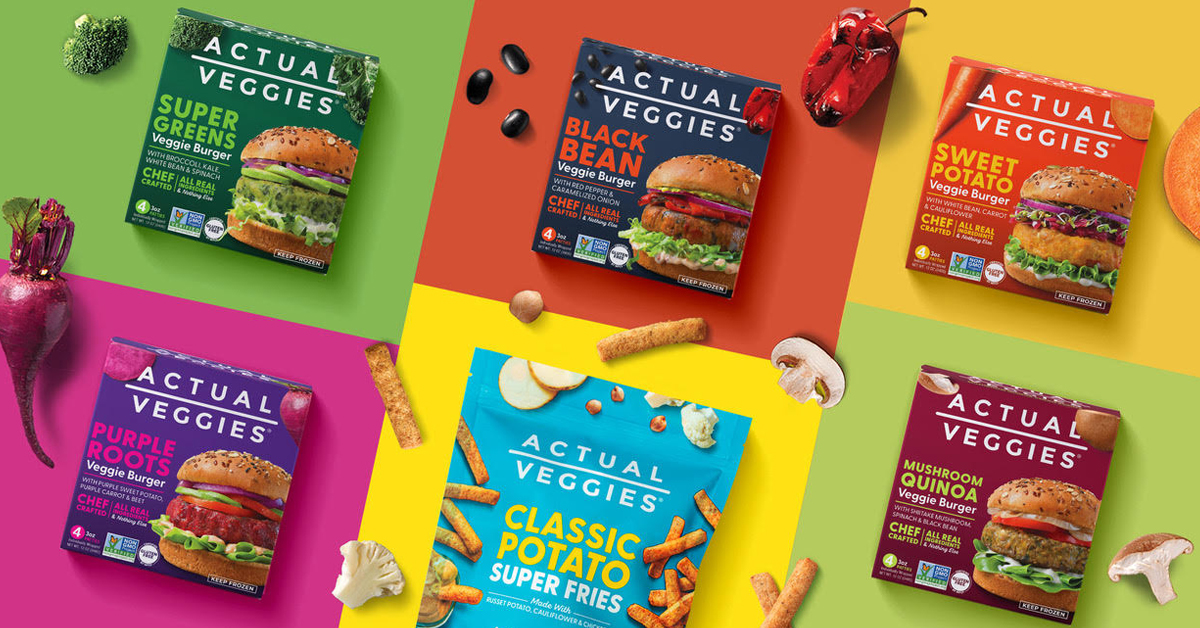
Actual Veggies has brought in a bit of new cash as it readies itself to more than double the footprint of its plant-forward, veggie burger lineup via a slew of new retail partnerships over the next six months.
“We are actually profitable now so we didn’t need to go and raise a huge round. It’s still seven figures, but it’s smaller than what other companies would probably raise at our stage,” explained co-CEO and co-founder Jason Rosenbaum. “It was really [because] we wanted to bring in some really awesome, experienced people that can help us with our growth.”
Relentless Consumer Partners led the round, which was closed at an undisclosed sum, with additional participation from Tom Brady’s business manager, Ben Rawitz, and existing investor Elly Truesdell’s New Fare Partners.
“As a founder-run, high-momentum brand, Actual Veggies is perfectly aligned with our investment approach,” said Scott Caras, president of Relentless Consumer Partners. “We [also] bring a breadth of experience scaling brands and are excited to play an active role in developing and executing a multi-year growth plan with the team.”
Along with the new strategic backing, the new funds will go towards supporting the brand’s upcoming launch at over 1,600 Albertsons/Safeway stores nationwide as well as Meijer, Earth Fare, Natural Grocers, an expansion at Kroger, and hundreds of regional and independent doors. These expansions will grow Actual Veggies footprint from 3,000 to over 6,000 in the coming months.
According to Hailey Swartz, co-founder and co-CEO, the brand’s veggie burgers are among the top two in their category, and its Black Bean variety is the top seller in its category “at many” retailers, she emphasized. That strong sales data has been an attractive point when talking to potential buyers, Rosenbaum added.
Additionally, the frozen veggie burger case has seen some space open up as PlantPlus Foods, the joint venture formed by ADM and Marfrig to house Sol Cuisine and long-time veggie burger slinger Hilary’s, has allegedly ceased operations. The absence of those products, which were also sold at Whole Foods, Safeway, Sprouts, Kroger, and many others, could likely have opened up new opportunities for the emerging plant-based business.
Actual Veggies is also expanding the reach of its Super Fries line, which debuted ahead of Expo West earlier this year and will be available in 600 stores “right out of the gate,” Rosenbaum noted, including at Sprouts, Erewhon, The Fresh Market and Market District. Throughout the summer, Swartz said that the new products will be co-merchandised with its burgers at select retailers.
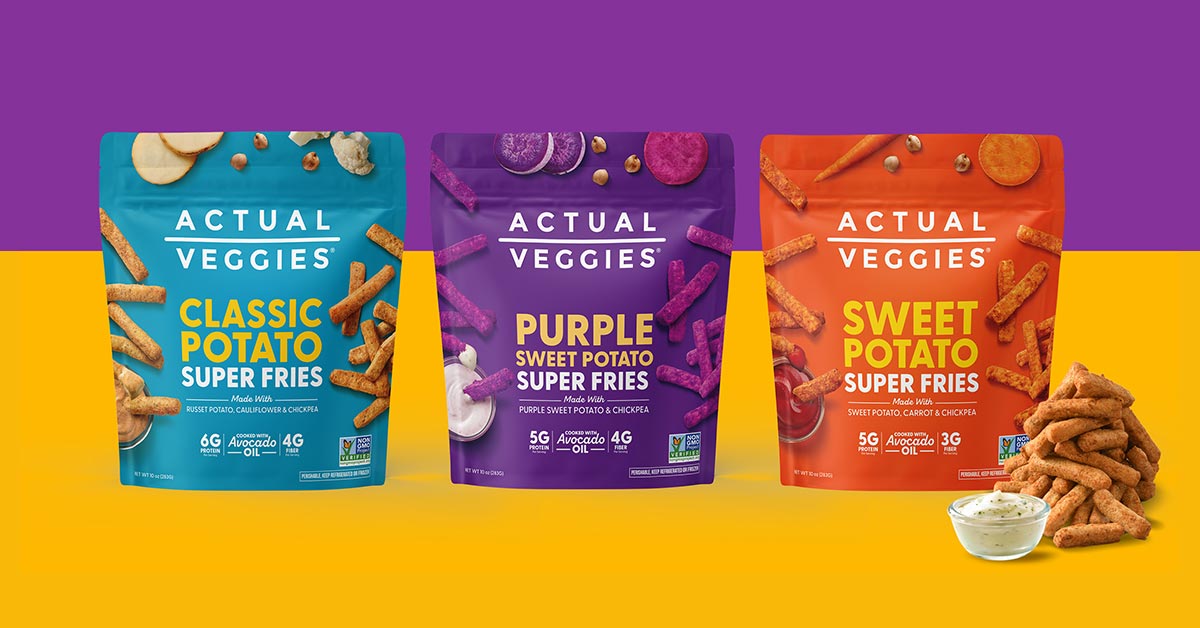
“We see a lot of brands that get into retailers and then they have a hard time staying in those retailers, so we’re actually doing the opposite,” said Rosenbaum. “Not only are we getting into retailers, we’re expanding in those retailers with added SKUs or added doors, and then on top of that, we’re just getting into some more retailers and it’s just like proof that our brand works and not only natural but also in conventional and all these different channels.”
But Actual Veggies isn’t growing solely within retail. The company recently hired a new employee dedicated to foodservice sales and has expanded its partnership with distributor Dot Foods.
“With foodservice it’s even more challenging [than retail] because… restaurants usually don’t function the way a retailer does,” explained Rosenbaum. “The odds that you’re going to land a big restaurant group that serves many is just very low. Usually you’re getting a five- restaurant chain or 10-restaurant chain at the very best and then have to open up with the individual distribution centers and usually the quantities just aren’t big enough.”
Now regional and local foodservice distributors are pulling their products from Dot’s network. For some time, the company sold into the channel by drop-shipping product packed with dry ice to specific accounts, but now Dot essentially acts like its middleman, Rosenbaum explained, providing Actual Veggies with the infrastructure to sell a cold-chain product nationally and generate “steady” sales from the channel.
“When we first launched the brand, our goal was to launch restaurant quality veggie burgers at the grocery store, and now it’s come full circle because we’re actually quietly served at hundreds of restaurants in the U.S.,” Rosenbaum added.
With the new capital, the five-employee team is set to continue expanding as it looks to hire a VP of sales and a trade sales manager. The company will also put some of the remaining funds towards marketing efforts and driving consumer awareness on shelf. However, with all of that growth, the startup is still taking a measured approach to exactly which channels it expands to and, and even more importantly, when.
“We are being very deliberate about when we go into club and mass channels,” Swartz said. “We want to make sure that when we are talking to that customer, it’s the right product and it also doesn’t compromise what we’re selling in other grocery stores.”

